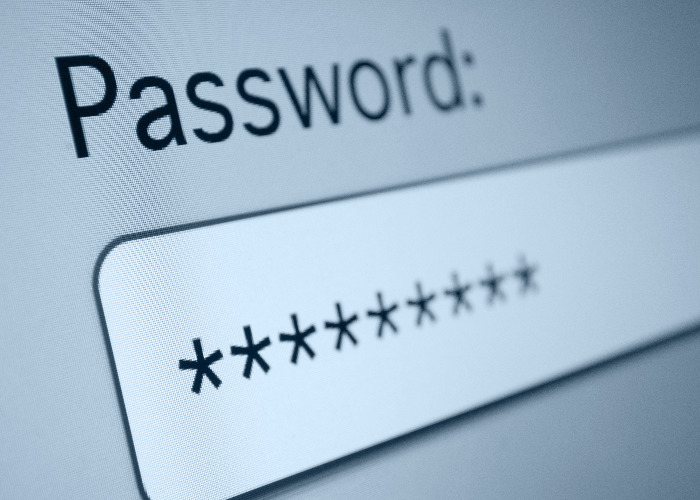Password managers: the best free and premium services on Android, iOS and PC

We're always bombarded with messages telling us are passwords are rubbish while we crumble under the weight of endless login details and security information. Don't despair, there's a wonderful way to store all those passwords, and you only have to remember one.
Sections
Bogged down by endless passwords
It seems like many of us are snowed under with countless passwords.
A new survey from price comparison site GoCompare shows that we have an average of 30 online accounts and contracts per person – that’s a lot of passwords to remember!
People tend to spend around two hours a week managing personal affairs and trying to remember account details and passwords, while three in 10 see it as a full-time job.
We have accounts for everything, from eBay to online banking. A third of respondents said they use a handful of passwords for a number of accounts while others have to write them down to have any chance of remembering them.
On average, we have five accounts for utilities, four for online shopping as well as smartphone apps and loyalty cards, and three for savings and loans, social media and email accounts.
|
Type of personal or money-related account |
Average number of accounts held |
|
Utilities and home services including gas, electric, water, council tax, TV licence, broadband and phone connections |
5 |
|
Online shopping accounts |
4 |
|
Smartphone apps requiring login details |
4 |
|
Loyalty card schemes |
4 |
|
Saving and loan accounts |
3 |
|
Social and webmail accounts |
3 |
|
Insurance policies (e.g. car, home, pet, life, travel) |
2 |
|
Credit cards and store cards |
2 |
|
Entertainment and lifestyle (e.g. Netflix, Amazon Prime, iTunes etc.) |
1 |
|
Music streaming and cloud storage accounts including Spotify, Google Play, Deezer, Microsoft OneDrive |
1 |
|
Online/mobile wallet accounts (e.g. PayPal, Paym, ApplePay, Ping It, Zapp, Google Wallet |
1 |
|
Sporting memberships including gym memberships, Strava or Garmin Connect, etc. |
1 |
|
Other memberships and subscriptions including magazine and newspaper subscriptions, library card, wine club, etc. |
1 |
Unfortunately, a lax attitude leaves people wide open to scammers. One in 10 of GoCompare's respondents said they had an online account hacked, while 12% had been a victim of financial fraud.
A substantial 38% said they didn’t have systems in place to manage their personal affairs, even though it would make handling day-to-day essentials that much easier.
Want to ease the headache over passwords? Try a password manager.
What is a password manager?
A password manager stores the passwords you use for various online accounts in one place, helping you log into them automatically.
They work by encrypting your password data base with a master password. Fortunately for you, it’s the only password you have to remember.
As for the rest, the manager will generate secure, random passwords for you and you don’t even have to remember them.
You’ll visit a website as normal and instead of filling in your login details, you enter your master password on the password manager which proceeds to fill out the information required from the site for you.
It can even be configured to fill in web forms automatically. Magic!
Which password manager should I use?
There are quite a few options out there. In this piece, we’re going to run over browser, free and premium services.
Your browser will offer an integrated password manager facility, but these are not without their problems.
Google Chrome’s password manager stores passwords on the PC, so if someone can access your computer, they can very easily access your passwords.
It’s pretty much the same story for Internet Explorer.
Firefox does have a password manager, but even though it does store passwords in an encrypted format, anyone who gets hold of your computer can still see them if they find your master password.
What's more, Firefox’s password manager doesn’t offer the same features that a dedicated service would, like cross-platform syncing.
The next choice to make is whether you’re going to punt for a free or premium service.
For a free service could go for Dashlane UK, which gives you two-factor authentication, can automatically change passwords on up to 500 different sites and generates 12-character passwords combining numbers and letters.
Importing passwords from Chrome, Firefox, Internet Explorer and even other password managers like LastPass is quick and straightforward too.
It’s available on PC, Mac, Android and iOS.
If you would rather pay for a premium product, you could try Sticky Password. Alongside other features like two layer authentication, it also uses biometric recognition through your finger print.
And if that’s not enough to convince you, part of Sticky Password’s proceeds goes to helping out endangered manatees. It only costs £9.89 for a year or £47.99 for a lifetime subscription.
Creating a strong master password
Of course, your master password is your most important so make it count.
The National Cyber Security Centre recommends using three random words to create a strong password.
Find out how it works and more importantly, how to remember them, by taking a look at How to create a strong password.
Comments
Be the first to comment
Do you want to comment on this article? You need to be signed in for this feature